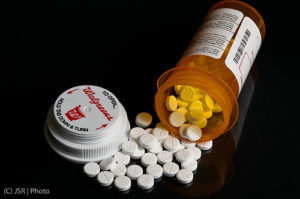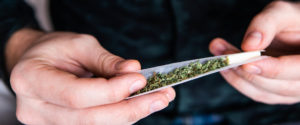Drug Charges | What Your Drug Crime Means for You
Drugs have been a part of our society and culture for decades. Beginning in the 60s and 70s during the “psychedelic” and “free love” eras, drugs were a recreational pastime that were commonly shared between young adults and teenagers.

Since that time drugs became more commonplace and widespread, and their dangers became a harsh reality. Drugs became linked to serious accidents, dangerous crimes, and even deaths. As a result, drugs were banned and were made illegal in almost every state in the country.
In fact, with the exceptions of murder and other violent crimes, drug-related crimes are probably the most serious, which means state and federal officials are taking these crimes very seriously.
Even though drugs are illegal, unfortunately this doesn’t stop people from using and abusing them every day. However, those who choose to be involved with illegal drugs in any way, shape or form, which means making, using, and selling and/ or distributing them will likely face harsh penalties and punishments by law, including jail time.
If you are caught with illegal drugs on your person, depending on the amount, you may likely face state and federal legal repercussions. Contacting a reputable drug crimes attorney may save you from a harsh punishment or sentence.
There are many different drugs which are bought, sold, used and brought into this country every day. But what types of drugs are considered illegal, and what are the possible punishments and sentences for each?
Illegal drugs include the following:
Marijuana – Marijuana is one of the most commonly used illegal drugs. Therefore, it is relatively easy to manufacture and purchase from dealers. In fact, statistics show that marijuana accounted for approximately 44 percent of all drug-related arrests across the United States in 2014.
 Although many states are legalizing marijuana to be used for recreational and even medicinal purposes, there are still laws and limitations imposed on the amount an individual is allowed to have in his or her possession. There are also laws surrounding “trafficking” or crossing state lines while in possession of marijuana.
Although many states are legalizing marijuana to be used for recreational and even medicinal purposes, there are still laws and limitations imposed on the amount an individual is allowed to have in his or her possession. There are also laws surrounding “trafficking” or crossing state lines while in possession of marijuana.
So if you currently face a pending marijuana possession or other charge, you could still face criminal charges, depending on the state in which you live and the amount found on your person.
Synthetic drugs – A synthetic drug is a chemical substance that typically contains hallucinogens, which create a “high”, or a mind-altering effect. Synthetic drugs are often referred to as “designer drugs” or “party drugs” and also include Flakka, bath salts, herbal incense or Could 9 on the streets. There are approximately 90 different synthetic drugs or synthetic marijuana combinations, which make it difficult for the government to regulate.
In 2012, the government banned the use, possession, and distribution of synthetic drugs. More than 30 states have also made synthetic drugs illegal.
Prescription pills – Prescription drug abuse is a real concern and is also becoming a high priority for local and federal law enforcement. In fact, prescription drug use and overdose is the leading cause of accidental death in the United States.
The most commonly abused prescription drugs involve pain relievers, antidepressants, and stimulants. These types of drugs include the following:
- Opioids (pain relievers)
- OxyContin
- Vicodin
- Xanax
- Valium
- Ritalin
- Adderall
According to a study published by the Center for Disease Control and Prevention (CDC), opioids killed more than 33,000 people in 2015. Furthermore, more than half of opioid abuse and overdoses are in some way linked to legitimate prescriptions.
As a result, federal and state officials are taking prescription drug crimes more seriously.
Other recreational drugs – In addition to marijuana, synthetic drugs, and prescription drugs, other recreational drugs that do not fall into these categories include crack cocaine and heroin, which are two of the most common drugs abused among children (as young as 12 years old) and young adults in the United States.
In fact, according to a report published by the DEA, heroin is becoming available in larger quantities, which is resulting in more overdoses and deaths. More than 10,000 Americans died from heroin use in 2014. This number has tripled from 2010.
The federal government and each individual state have laws against the unlawful use, possession, distribution or manufacturing of illegal drugs. These laws are intended to reduce illegal drug use, drug-related crimes, and deaths.
There are five categories of drugs based on their level of dependency and abuse. For example, Schedule I and II drugs or controlled substances (such as heroin) which have the highest potential for dependency and abuse without serving any medical purpose. Schedule V drugs (such as OxyContin, Codeine or other prescription drugs) have a low dependency level but are often used for medical purposes.
The punishments and potential sentences for illegal drug possession, distribution or manufacturing of Schedule I are the highest. Therefore, anyone who faces a drug offense for possessing or selling Schedule I or Schedule II drugs can expect to face some pretty serious penalties including imprisonment.
The punishments for each drug-related crime and offense vary based on the following:
- The state in which you live
- The quantity of the drug
- The drug’s assigned classification
- The purpose or reason for possession
For example, the most serious drug crimes include the following:
- Manufacturing or making drugs (such as growing marijuana plants or housing meth labs)
- Selling, distributing or trafficking drugs (such as traveling into other states with the possession of drugs)
- Possessing illegal drugs in large quantities with the intent to sell or distribute
If you or a loved one were recently arrested for the possession, sale, distribution or trafficking of illegal drugs, then you likely face serious charges. Depending on the state in which you live, if you are found guilty for your specific illegal drug charge, then you likely face serious penalties, a lengthy prison sentence, probation and even a required rehabilitation program.
Being charged and sentenced for a drug crime can change your life. You might be expelled from school, fired from your job, and face damaged personal relationships with friends, family, and loved ones. Regardless of whether your pending drug charge is your first, second or third offense, if you currently face an illegal drug-related crime or charge, then you need legal representation immediately.
Contact the Law Offices of Ali J. Amirshahi in Richmond to schedule a complimentary consultation. Contacting a reputable drug crimes attorney may save you from a harsh punishment or sentence. Call us at 804-658-5384 or fill out our contact form and we will reach out to you.
